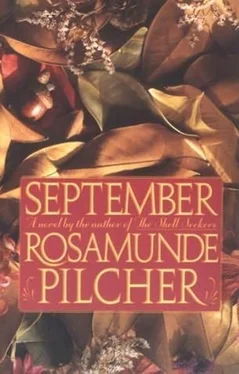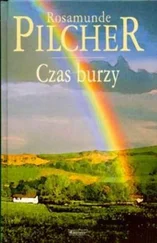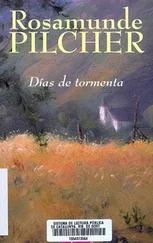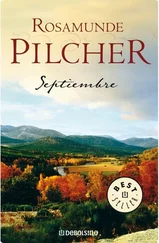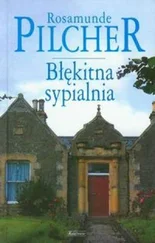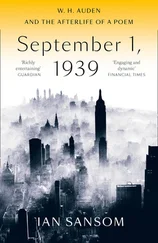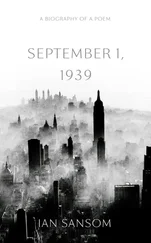Rosamunde Pilcher - September
Здесь есть возможность читать онлайн «Rosamunde Pilcher - September» весь текст электронной книги совершенно бесплатно (целиком полную версию без сокращений). В некоторых случаях можно слушать аудио, скачать через торрент в формате fb2 и присутствует краткое содержание. Жанр: Современная проза, на английском языке. Описание произведения, (предисловие) а так же отзывы посетителей доступны на портале библиотеки ЛибКат.
- Название:September
- Автор:
- Жанр:
- Год:неизвестен
- ISBN:нет данных
- Рейтинг книги:5 / 5. Голосов: 1
-
Избранное:Добавить в избранное
- Отзывы:
-
Ваша оценка:
- 100
- 1
- 2
- 3
- 4
- 5
September: краткое содержание, описание и аннотация
Предлагаем к чтению аннотацию, описание, краткое содержание или предисловие (зависит от того, что написал сам автор книги «September»). Если вы не нашли необходимую информацию о книге — напишите в комментариях, мы постараемся отыскать её.
September — читать онлайн бесплатно полную книгу (весь текст) целиком
Ниже представлен текст книги, разбитый по страницам. Система сохранения места последней прочитанной страницы, позволяет с удобством читать онлайн бесплатно книгу «September», без необходимости каждый раз заново искать на чём Вы остановились. Поставьте закладку, и сможете в любой момент перейти на страницу, на которой закончили чтение.
Интервал:
Закладка:
It was raining again. The windscreen wipers swung to and fro. Perhaps conversation would divert their attention from the misery of it all.
"Is this your first visit to Scotland?"
The two ladies, chipping in on each other like a close-harmony duo, told her. The men had been there before, to play golf, but this was the first time their wives had accompanied them. And they just loved every inch of the place, and had gone crazy in the shops in Edinburrow. It had rained, of course, but that hadn't bothered them. They had their new Burberries to wear, and both decided that the rain made Edinburrow look just so historic and romantic that they had been able to picture Mary and Bothwell riding together up the Royal Mile.
When they had finished, Isobel asked them what part of the States they came from.
"New York State. Rye."
"Are you by the sea there?"
"Oh, sure. Our kids sail every weekend."
Isobel could imagine it. Could imagine those kids, tanned and windblown, bursting with vitamins and fresh orange juice and health, scudding over starch-blue seas beneath the curving wing of a snow-white mainsail. And sunshine. Blue skies and sunshine. Day after day of it, so that you could plan tennis matches and picnics and evening barbecues and know that it wasn't going to rain.
That was how summers, in memory, used to be. The endless, aimless summers of childhood. What had happened to those long, light days, sweet with the scent of roses, when one had to come indoors only to eat, and sometimes not even then? Swimming in the river, lazing in the garden, playing tennis, having tea in the shade of some tree because it was too hot anywhere else. She remembered picnics on moors that simmered in the sunlight, the heather too dry to light a camp-fire, and the larks flying high. What had happened to her world? What cosmic disaster had transformed those bright days into week after week of dark and soggy gloom?
It wasn't just the weather, it was just that the weather made everything so much worse. Like Archie getting his leg shot off, and having to be nice to people you didn't know because they were paying you money to sleep in your spare bedrooms^ And being tired all the time, and never buying new clothes, and worrying about Hamish's school fees, and missing Lucilla.
She heard herself saying, with some force, "It's the one horrible thing about living in Scotland."
For a moment, perhaps surprised by her outburst, nobody commented on this announcement. Then one of the ladies spoke. "I beg your pardon?"
"I'm sorry. I meant the rain. We get so tired of the rain. I meant these horrible summers."
2
The Presbyterian church in Strathcroy, the established Church of Scotland, stood, impressive, ancient, and venerable, on the south bank of the river Croy. It was reached from the main road that ran through the village by a curved stone bridge, and its setting was pastoral. Glebe lands sloped to the water's edge, a grassy pasture where, each September, the Strathcroy Games were held. The churchyard, shaded by a mammoth beech, was filled with time-worn, leaning gravestones, and a grassy path led between these to the gates of the Manse. This as well was solid and imposing, built to contain the large families of bygone ministers and boasting an enviable garden burgeoning with gnarled but productive fruit trees and old-fashioned roses, for these flourished behind the protection of a high stone wall. All of this, so charmingly disposed, exuded an ambience of timeless-ness, domestic security, and God-fearing piety.
In contrast, the little Episcopal church, like a poor relation, crouched directly across the bridge, totally overshadowed, both literally and metaphorically, by its rival. The main road ran close by, and between the church and the road was a strip of grass which the rector, the Reverend Julian Gloxby, himself cut each week. A small lane led up a slope to the back of the church and to the rectory that stood behind it. Both were modest in size and whitewashed. The church had a little tower with a single bell, and a wooden porchway enclosed its main door. Inside, it was equally unassuming. No handsome pews, no flagged floors, no historic relics. A worn drugget led to the altar, and a breathless harmonium did duty as an organ. There was always a faint smell of damp.
Both church and rectory had been erected at the turn of the century by the first Lord Balmerino and handed over to the Diocese with a small endowment for maintenance. The income this produced had long since trickled to nothing, the congregation was tiny, and the Vestry, endeavouring to make ends meet, found themselves perpetually strapped for cash.
When the electric wiring was discovered to be not only faulty but downright dangerous, it was very nearly the last straw. But Archie Balmerino rallied his meagre troops, chaired committees, visited the Bishop and wangled a grant. Even so, some fund-raising was going to be necessary. Various suggestions were put forward, discussed, and eventually turned down. In the end, it was decided to fall back on that old dependable, a church sale. This would take place in July, and in the Village Hall. There would be a Jumble stall, a Plant and Vegetable stall, a White Elephant and Handwork stall, and, of course, teas.
A committee was duly appointed and met, on that grey and damp June afternoon, around the dining-room table at Balnaid, home of Virginia and Edmund Aird. By half past four the meeting was over, with business satisfactorily concluded and modest plans laid. These included the printing of eye-catching posters, the borrowing of a number of trestle-tables, and the organizing of a raffle.
The rector and Mrs. Gloxby, and Toddy Buchanan, who ran the Strathcroy Arms, had already taken their leave and driven away in their cars. Dermot Honeycombe, busy with his antique shop, had been unable to attend. In his absence, he had been given the job of running the White Elephant stall.
Now only three people remained. Virginia and Violet, her mother-in-law, sat at one end of the long mahogany table and Archie Balmerino at the other. As soon as the others had gone, Virginia had disappeared into the kitchen to make tea, and brought it to them on a tray, without ceremony. Three mugs, a brown teapot, a jug of milk, and a bowl of sugar. It was both refreshing and welcome, and it was pleasant to relax after the concentrated discussions of the afternoon and to be able to chat without restriction, enjoying the easy closeness of family and old friends.
They were still mulling over the church sale.
"I just hope Dermot won't mind being told he has to run the White Elephant stall. Perhaps I should ring him and give him the opportunity to say he doesn't want to do it." Archie was always cautious about other people's feelings, terrified of it being thought that he was throwing his weight about.
Violet pooh-poohed the very idea. "Of course he won't. Dear man, he never minds pitching in. He'd probably be far more hurt if we gave the job to somebody else. After all, he knows the value of everything…"
She was a tall lady in her late seventies and very large, dressed in a much-worn coat and skirt and shod in sensible brogues. Her hair was grey and wispy, skewered to the back of her head in a small bun, and her face, with its long top lip and wide-set eyes, resembled that of a kindly sheep. And yet she was neither plain nor dowdy. Wonderfully upright, she had presence, and those eyes were both merry and intelligent, dispelling any suggestion of haughtiness. Now they twinkled with amusement. "Even pottery doggies with bones in their mouths, and table lamps made out of old whisky bottles plastered in shells."
Virginia laughed. "He'll probably pick up some wonderful bargain for twenty-five pence and sell it for some incredible price in his shop next day."
Читать дальшеИнтервал:
Закладка:
Похожие книги на «September»
Представляем Вашему вниманию похожие книги на «September» списком для выбора. Мы отобрали схожую по названию и смыслу литературу в надежде предоставить читателям больше вариантов отыскать новые, интересные, ещё непрочитанные произведения.
Обсуждение, отзывы о книге «September» и просто собственные мнения читателей. Оставьте ваши комментарии, напишите, что Вы думаете о произведении, его смысле или главных героях. Укажите что конкретно понравилось, а что нет, и почему Вы так считаете.
